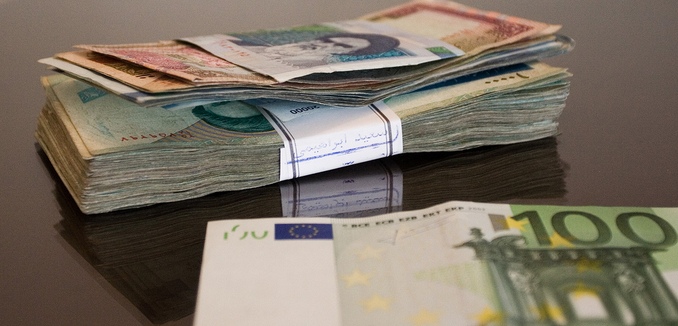European banks remain skeptical of doing business with Iran because the country continues to be blacklisted by the Financial Action Task Force, a global watchdog supported by more than 30 Western countries focused on ensuring the integrity of the international financial system.
Iran’s FATF blacklisting, which was spurred by the widespread use of money laundering, is only one of the banks’ concerns, Samuel Cutler, a senior analyst at Horizon Client Access, told The Wall Street Journal on Monday. The banks are also nervous about internationally sanctioned groups like the Iranian Revolutionary Guard Corps (IRGC) continuing their control over a large portion of Iran’s economy. The U.S.’s continuing sanctions on Iran (largely for its ongoing support of terror) also prevent U.S.-based affiliates of foreign banks from being involved in deals with the Islamic Republic.
Stuart Levey, President Barack Obama’s former undersecretary of the treasury for terrorism and financial intelligence, wrote in the Journal last week that the conditions that led to the terror sanctions being put on Iran in the first place haven’t changed in the past decade, making Iran an unsafe investment. Levey, now the chief legal officer of HSBC Holdings, wrote that his company “has no intention of doing any new business involving Iran” because of the serious concerns over “financial-crime risks and the underlying conduct” of Iran.
A CNBC report on Monday on a Swedish firm looking to invest in Iran noted the many challenges it was facing, including identifying Iranian companies that serve as fronts for the IRGC. Secretary of State John Kerry alluded to some of these risks of doing business with Iran in an interview with CNN last week, admitting that “Iran needs to modernize its banking system. Iran needs to modernize the way it does some business.”
Iranian leaders have portrayed the lack of international financial integration as a violation of last year’s nuclear deal.
The “conservatism among large European banks” is hindering the “required cooperation” to fully implement the nuclear deal, Iranian Deputy Foreign Minister Majid Takht-e Ravanchi said at a meeting with Italian trade delegates on Monday. This belief is not shared by the West, who have long maintained that the deal was never meant to address any non-nuclear issues, such as Iran’s support for terrorism and the sanctions put in place to discourage the country’s destabilizing actions.
Valiollah Seif, the governor of Iran’s central bank, threatened last month that the nuclear deal would collapse if the United States didn’t do more to integrate Iran into the international finance system. But Seif acknowledged to the Financial Times in January that Iran’s banking practices were “outdated.”
[Photo: Ivar Husevåg Døskeland / Flickr ]




